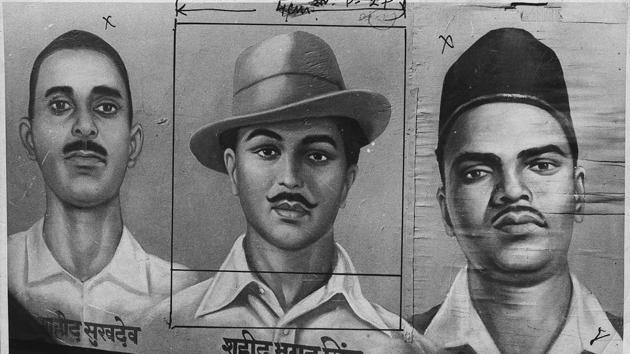Bhagat Singh and his comrades showed politics has no age bar
Their lives, Bhagat Singh, Sukhdev, and Rajguru, are proof that one is never too young to be politically aware, to educate oneself about the truth of the world at large, and to actively play a role in shaping the society one wants to live in
Is the following an easy thing to imagine in the world of 2019? Three young, articulate, well-read members of a socialist revolutionary group, who court arrest in order to register protest against an Act passed by the imperial government; go on strike in prison to bring attention to the horrible state of prisoners; and are then hanged — all in their early twenties. That was Bhagat Singh (23 at the time of his death), who, along with his comrades, Sukhdev (23) and Rajguru (22), were hanged on this day in 1931. The arrest also brought to light, their earlier involvement in the killing of a policeman. In their deaths, they became immortal, underlining once again that the revolution will be led by the young; and inspiring generations of people to seize the day and fight for their beliefs.

In the coming election, the number of first-time voters in India is a staggering 15 million (to put things in perspective, that’s more than the entire population of Switzerland and Finland put together). Most of them are between the ages of 18 and 25. It is at this age that Bhagat Singh, Sukhdev, and Rajguru cut their teeth on the revolutionary ideologies that would make them household names. Even though we have come to know all three of them as committed revolutionaries, they were — not long before their deaths — just young kids, unsure about their future and struggling with everyday problems. To students in school and college — as many of the first-time voters of India might now be — Bhagat Singh’s life would be a very recognisable one. In his famous essay titled, Why I Am An Atheist (written in 1930, in jail), he writes, “I was never an industrious or studious boy…[and] had certain pessimistic dispositions about [my] future career.”
As members of the Hindustan Socialist Republican Association, Bhagat Singh, Sukhdev, and Rajguru were all politically aware individuals, instrumental in social mobilisation, and organised local political events. Bhagat Singh’s commitment to the cause is evidenced in his letter to his father from prison in October 1930, in which he chides him for submitting a petition to the Special Tribunal in connection with his defence.
The lessons from the lives of these revolutionaries remain as relevant today as they were during the independence movement. Their lives are proof that one is never too young to be politically aware, to educate oneself about the truth of the world at large, and to actively play a role in shaping the society one wants to live in. Bhagat Singh the thinker, the revolutionary, and the philosopher continues to be a shining beacon for young people in India, and indeed, the rest of the world.



